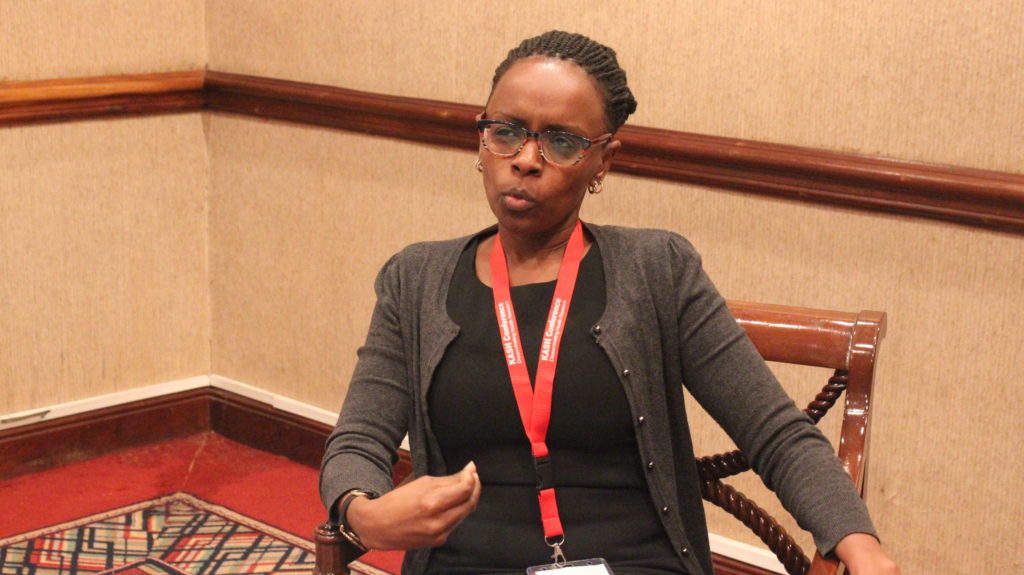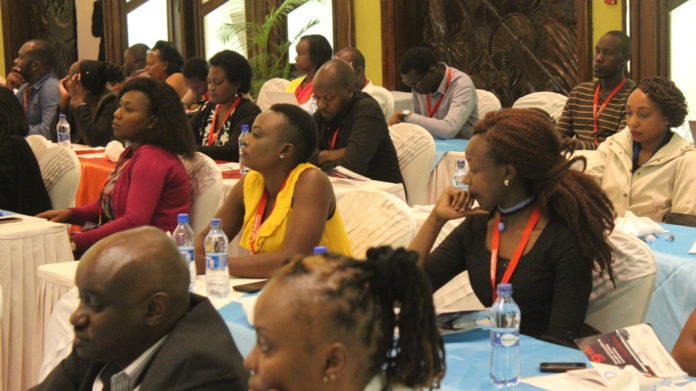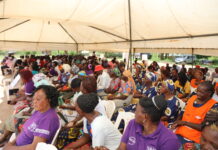By Mary Mwendwa
A recent (Kenya Medical Research Institute) KEMRI Annual Scientific and Health Conference brought together various health researchers whose mission was to share and digest various research outputs. The collaborations were aimed at promoting networks and strengthening partnerships to improve the health and quality of life of citizens. Dr. Kui Muraya, a Post-Doctoral social scientist at the Kemri –Wellcome Trust was among the attendees. Talkafrica’s Mary Mwendwa interviewed her about her research work on gender and health.
Talkafrica : Tell us more about your research and areas of interest
Dr.Kui Muraya : I would say that the overall thread that runs through my research work is gender and health. That is the umbrella topic of my work. In that umbrella I look at different areas. For example I have done work on gender and child nutrition interventions within rural communities in Kilifi.
Actually my current work is related to gender and child nutrition in relation to acute childhood illness.
The other work I do is around gender and health leadership. I look at gender and health governance in general.
Talkafrica :Why gender?
Dr.Kui Muraya : To be honest, gender has been a topic that I got interested in since I was a young girl. At around 14 – 15 years when I was in high school, I saw a story in the news where a man had set his wife on fire just because she had talked to another man. This really moved me and from then on I got interested in undertaking issues related to gender.
I also come from a family where my parents are very liberal. It is a mixture of my upbringing and my interest too.

Post-Doctoral Social Scientist at the KEMRI-Wellcome Trust Research Programme
Talkafrica : You have talked about gender and child nutrition in Kililfi, tell us more about your findings
Dr.Kui Muraya : That was my PHD work which I did in rural Kilifi. Interesting findings came up during the study. But one finding (that was not necessarily extraordinary) was that child nutrition was a woman’s sphere or domain. Even when we went out to homesteads, we could find the men who welcomed us warmly. But when we said that we wanted to discuss about nutrition they referred us to women. That has prompted my interest in engaging men in child health and nutrition and I am currently trying to develop work in this area.
My other work has also been in urban informal settlements of Nairobi. Here too, in the urban area we find that there is a general sense that nutrition is a women’s affair. I feel that if we start engaging men in matters of child health and nutrition we would really start seeing better outcomes. I do not have evidence on this but this is just my thinking.
We also found out that some men are involved too but it is primarily womeny engaged in primary health care. There were other findings too.
Talkafrica : Could you speak about the gender gaps in relation to human resource in health sector
Dr.Kui Muraya : If I speak specifically about my work . First, we know that the health sector is highly feminized. A bulk of human resource in the sector is female. For example in nursing we have more women and currently we are increasingly seeing men join the sector.
Another thing, initially when we started talking to people mostly during our work in counties there was a sense that gender was a not an issue. But the more we talked to people the more they started opening up. Women admitted to struggling to manage work and life. Then there were some respondents, both men and women who thought that this would influence leadership selection.
Talk Africa: why are we not seeing more women in top science spaces
Dr.Kui Muraya : Talking of the ‘leaky pipeline ‘as we call it, what I know from anecdotal information is that the number of men and women joining university to pursue sciencecourses is usually the same, in fact women are usually more. The problem comes in when progressing in the career. Women have to make some tough decisions especially in choosing between family and career.
I could also say that it has to do with the way we are nurtured too. There is a cultural element which has to do with the woman’s self-esteem. Recently, I was forced by our Director to speak at a meeting, initially I was hesitant, I did not have confidence in myself, so this happens.
Doctors (regardless of sex) are preferentially selected into leadership positions. It is not male doctors. Both male and female doctors are preferentially selected into leadership positions over other health cadres – that is what our study found.
Talkafrica : Some people say that women are their own enemies, what do you take of this statement?
Dr.Kui Muraya : I would say yes and no. I do not think it is a women thing, it is a human thing. In my career men have uplifted me just the same way women have uplifted me. On the contrary there are women who have not uplifted me as well as men. Human beings can either raise you or not.
Talkafrica : What do you think of the two-thirds gender rule in terms of health leadership
Dr.Kui Muraya : The two-thirds gender rule is both a good and bad thing. People keep referring to it as if we have achieved gender equity yet there is much more that needs to be done. One of the critical questions we need to be asking ourselves is that do we have friendly working spaces for women to rise into leadership, for example women with children? Imagine how the productivity of a woman who works at a place where there is on-site day care for her child would improve? This woman will not be worrying about her child because she is able to easily access her child as needed right at the work place.
We still have more work to do to promote gender equity and this has to start right from the family set up.
Talkafrica : what about gender and Universal Health Coverage (UHC)?
Dr.Kui Muraya : If we do not take gender seriously we will not achieve UHC. Gender affects many things. I think as a country if we want to achieve UHC we have to work on gender equity.
Talkafrica : Your parting shot
Dr.Kui Muraya : I am reading book where the author was quoting another author. The author; says that “values is not what you believe, it is what you live” (Dr. Robin L. Smith) . Many people ‘believe’ in values around equity but they are not living it, in other words they are not practicing it.














